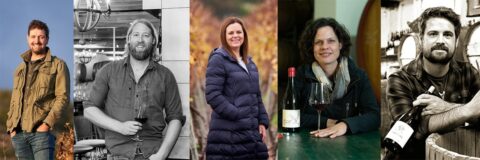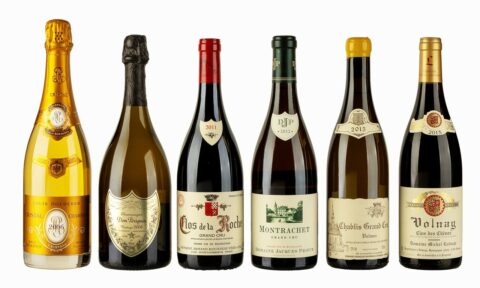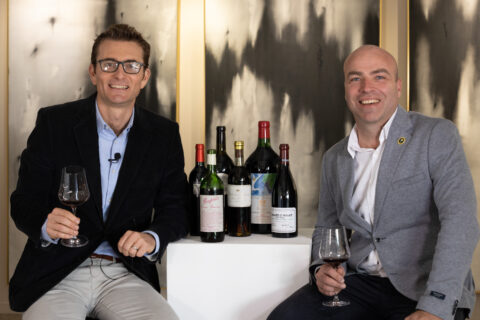Financial Mail Travel PR
The (Not So) Secret Garden
Virginia Povall is an American by birth, and a South African winemaker, Protea Farmer and Guesthouse Owner by choice. Her farm, Protea Heights, in the Devon Valley covers 53 acres of land, of which she still cultivates a percentage to grow Proteas commercially, the farm historically, having been one of the first to do so in South Africa. Though as Ginny (as she is known in the industry, not to be confused with a certain Weasley) puts it, Proteas are a financially more attractive crop, the economics of Protea growing more attractive than that of grape growing by far. Her decision therefore to do both, a testament to a keen analytical eye, most probably from her days as Chief Operating Officer at a large consulting firm in New York, and a passion for wine and gardening.
This year will be the 10th anniversary of her first vineyard plantings, the results of which are now to be enjoyed in the form of her Big Flower range. You see, Ginny never intended to wait for her vineyards to mature before making wine, she went in search of grapes and started making The Mary Delany Collection of wines right off the bat (a baseball reference in honour of Ginny’s New England roots). Mary having turned out to be the perfect accompaniment to these stellar wines.
Delany was an English artist (1700-1788), who only later in life realised her potential as a botanical collagist (it’s a word!), making 985 of the pieces she called “Paper Mosaiks” from the age of 71 to 88, when her eyesight failed. These scientifically accurate works detailed a variety of plant specimens and were highly prized for their intricacy, earning her patronage from the Dowager Duchess of Portland, later taken over by King George III and Queen Charlotte. Ginny was fortunate to obtain a license for the use of a few of these Paper Mosaiks which now adorn her range of wines by the same name from a variety of notable Western Cape terroir. Foremost of which, or most celebrated of which, her Citrusdal Chenin Blanc. More specifically from the Skurfberg, a rocky outcrop between Clanwilliam and the ocean, situated within the Citrusdal Mountain ward, in the Olifants Rivier wine region.
You may have heard of the Skurfberg, if only in the context of wine legend, and even then, whispered. The thing about the Skurfberg, according to Rosa Kruger, which above the fact that there are only three farms there (Trekpoort, Arbeidsand and Oudam), is a combination of the following: 35+ year old vines, modest yields, proximity to the ocean, high altitude and deep red sandy soils with a layer of clay below. People like Eben Sadie, Chris and Suzaan Alheit, Anthonij Rupert Wyne and Fram are making incredible wines here, though Ginny may well have been first to the scene.
When asked how she managed to procure grapes from this previously unknown region she responded: “Johan Viljoen, my viticulturist at the time brought me to Henk’s farm when I asked about a unique site for old vine Chenin. I’m pretty sure I can claim that I was the first to shake hands with Henk, agreeing to purchase his grapes for something other than going to the co-op. It was a completely unknown site at that point.” Which brings me back to the metaphorical grapevine and how very much intertwined people in the wine industry are, and how often people remark on it.
Ginny herself says: “I would never be doing this if it weren’t for Neil Morehouse, and now I’ve learned so much more with Bernard Le Roux (previous and current winemakers at Zorgvliet). These guys are special people in my heart, but every winemaker that I have asked for help has always been so generous with their advice. That’s why I love it here.” Their combined efforts have resulted in something Tim Atkin has rated as one of the Chenins of the Year on a number of occasions, and said of the 2016 vintage, rated 95 points: “Honeyed, dense and a little riper than the 2015, with pear and stone fruit flavours and amazing, racy acidity. 2018-22 “ Though the Pinot Noir of the same range, from the Hemel-en-Aarde Valley is not to be ignored, her 2016 vintage was awarded 92 points with grapes taken from La Vierge on the Hemel-en-aarde ridge. Personally, as Ginny’s preferred varietal I’d keep an eye…
Of the Big Flower Range made exclusively from her Devon Valley grapes, Ginny says: “I felt that I had to create a different brand for my own grapes because it is the farming that differentiates these wines. We are organic and soon to be certified, if all goes well, next year. We have high density vineyards, some with 10,000 vines per hectare. We have no leaf roll virus on the farm and therefore have the ability to ripen Merlot, Cabernet Sauvignon and Cabernet Franc with no green flavours.” The proof as they say is in the pudding, with Tim Atkin having this to say about her 2015 Merlot, rated 93 points: “The second vintage of Ginny Povall’s Merlot, grown on clay rich soils on her farm in the Devon Valley, proves that the grape is very well suited to the site. Rich, plush and smooth, with no green herbal notes, just textured plum and blueberry fruit framed by stylish oak. 2018-23” Given the woman and the feat she’s achieved so far – we’re looking forward to the evolution of this brand.
Article supplied by, and wines available on Port2Port: www.port2port.wine.






 Sign-up and receive the Business Media MAGS newsletter OR SA Mining newsletter straight to your inbox.
Sign-up and receive the Business Media MAGS newsletter OR SA Mining newsletter straight to your inbox.